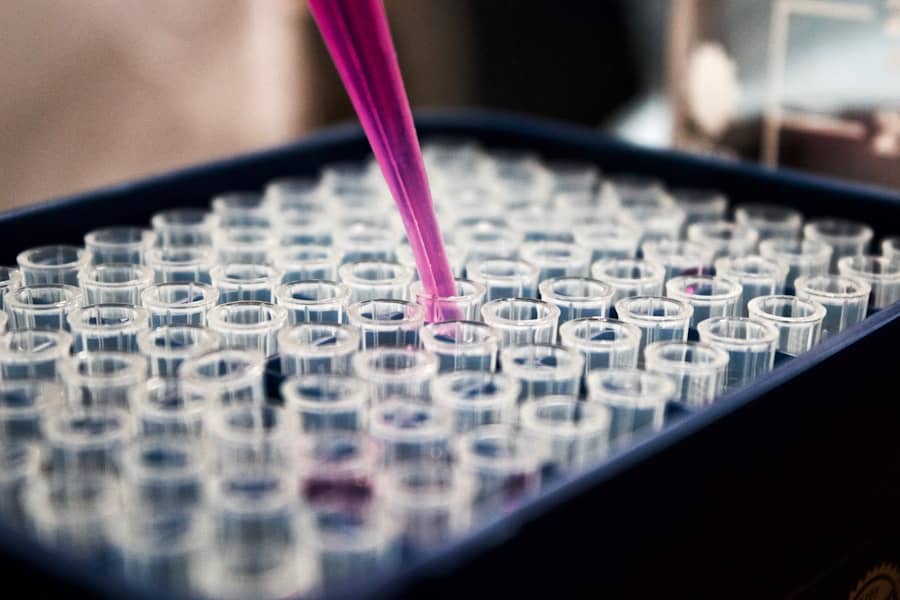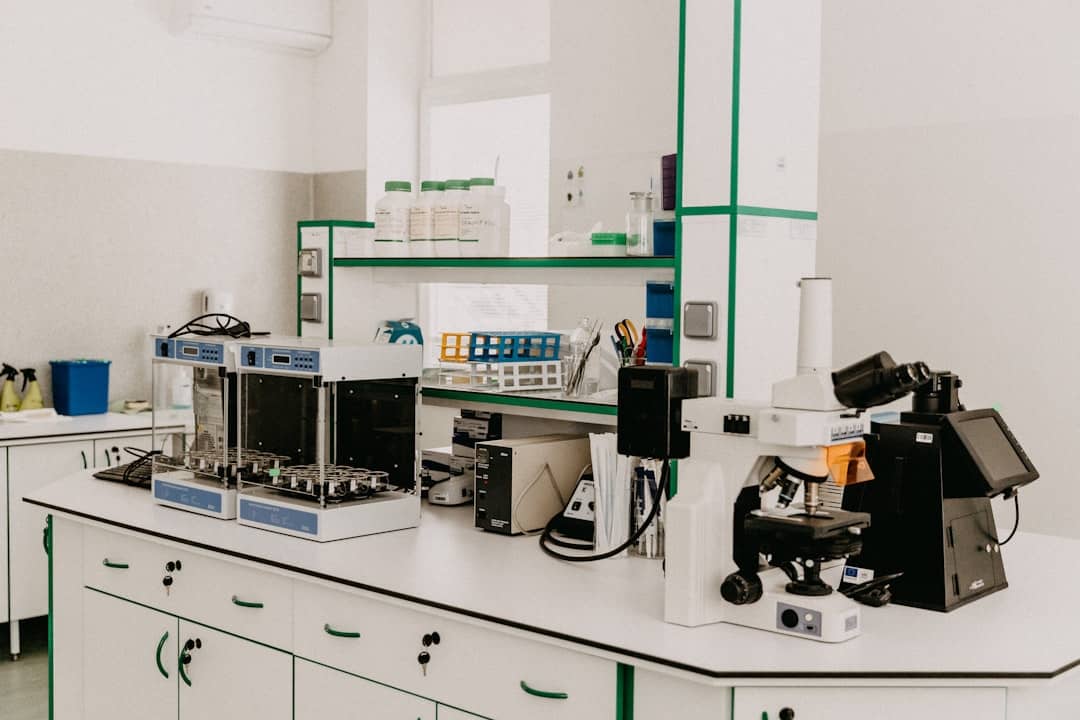The intersection of biotechnology and artificial intelligence (AI) has ushered in a new era in the field of genome sequencing, revolutionizing our understanding of genetics and its implications for health, agriculture, and beyond. Genome sequencing, the process of determining the complete DNA sequence of an organism’s genome, has traditionally been a labor-intensive and time-consuming endeavor. However, advancements in both biotech tools and AI algorithms have significantly accelerated this process, making it more efficient and accessible.
The integration of these two fields not only enhances the speed and accuracy of sequencing but also opens up new avenues for data analysis and interpretation, leading to groundbreaking discoveries in genomics. As we delve deeper into the roles of biotechnology and AI in genome sequencing, it becomes evident that their synergy is transforming the landscape of genetic research. Biotech provides the necessary tools and methodologies for extracting, amplifying, and sequencing DNA, while AI offers sophisticated computational techniques to analyze vast amounts of genomic data.
This collaboration is not merely a trend; it represents a fundamental shift in how we approach genetic research, diagnostics, and personalized medicine. The implications of these advancements are profound, affecting everything from disease prevention to the development of targeted therapies.
Key Takeaways
- Biotech and AI are revolutionizing genome sequencing by enabling faster and more accurate analysis of genetic information.
- Biotech plays a crucial role in genome sequencing by providing the tools and techniques for DNA extraction, sequencing, and analysis.
- AI complements biotech in genome sequencing by processing large volumes of genetic data, identifying patterns, and predicting potential outcomes.
- The combination of biotech and AI in genome sequencing offers advantages such as improved accuracy, faster analysis, and the ability to uncover complex genetic relationships.
- The applications of biotech and AI in genome sequencing range from personalized medicine and disease diagnosis to agriculture and environmental conservation.
The Role of Biotech in Genome Sequencing
The Advent of Next-Generation Sequencing
One of the most significant advancements in this field is the development of next-generation sequencing (NGS) technologies. NGS allows for the rapid sequencing of entire genomes at a fraction of the cost and time compared to traditional methods like Sanger sequencing.
Advancements in Sequencing Techniques
Techniques such as whole-genome sequencing (WGS), targeted sequencing, and RNA sequencing have become standard practices in both research and clinical settings, enabling scientists to explore genetic variations with unprecedented depth. Moreover, biotech innovations have led to the creation of high-throughput sequencing platforms that can process millions of DNA fragments simultaneously.
Applications and Impacts of Genome Sequencing
For instance, Illumina’s sequencing technology has become a cornerstone in genomics research, allowing for comprehensive studies on human health, evolutionary biology, and even environmental science. The ability to sequence multiple genomes concurrently has also facilitated large-scale population studies, providing insights into genetic diversity and disease susceptibility across different demographics.
The Role of AI in Genome Sequencing

Artificial intelligence is increasingly becoming an indispensable component of genome sequencing, particularly in the analysis and interpretation of complex genomic data. The sheer volume of data generated by modern sequencing technologies can be overwhelming; thus, AI algorithms are employed to sift through this information efficiently. Machine learning models can identify patterns and correlations within genomic datasets that would be nearly impossible for human researchers to discern manually.
For example, AI can assist in predicting the functional impact of genetic variants by analyzing vast databases of known mutations and their associated phenotypes. Furthermore, AI-driven tools are enhancing the accuracy of variant calling, which is crucial for identifying potential disease-causing mutations. Traditional methods often struggle with distinguishing between benign variants and those that contribute to disease pathology.
However, AI algorithms can leverage training datasets to improve their predictive capabilities, leading to more reliable diagnoses.
Advantages of Combining Biotech and AI in Genome Sequencing
The integration of biotechnology and artificial intelligence in genome sequencing offers numerous advantages that significantly enhance research capabilities and clinical applications. One of the most notable benefits is the acceleration of data processing times. By combining high-throughput sequencing technologies with AI algorithms, researchers can analyze genomic data at an unprecedented pace.
This rapid turnaround is particularly beneficial in clinical settings where timely diagnoses can be critical for patient outcomes. Another advantage lies in the improved accuracy and precision of genomic analyses. AI algorithms can reduce human error in data interpretation by providing consistent and objective assessments of genetic variants.
This reliability is crucial when making clinical decisions based on genomic information, such as selecting targeted therapies for cancer patients or identifying hereditary conditions. Moreover, the ability to integrate diverse datasets—ranging from genomic sequences to clinical records—enables a more holistic understanding of health and disease, paving the way for personalized medicine approaches tailored to individual patients.
Applications of Biotech and AI in Genome Sequencing
The applications of biotechnology and artificial intelligence in genome sequencing are vast and varied, spanning multiple fields including medicine, agriculture, and environmental science. In healthcare, these technologies are being utilized for precision medicine initiatives that aim to tailor treatments based on an individual’s genetic makeup. For instance, oncologists can use genomic sequencing to identify specific mutations within a tumor’s DNA, allowing them to select targeted therapies that are more likely to be effective for that particular patient.
In agriculture, biotech and AI are being harnessed to develop genetically modified organisms (GMOs) that exhibit desirable traits such as drought resistance or enhanced nutritional content. Genome editing techniques like CRISPR-Cas9 have revolutionized plant breeding by enabling precise modifications at specific loci within the genome. Coupled with AI-driven predictive models that assess the potential impact of these modifications on crop yield and resilience, researchers can optimize agricultural practices to meet global food demands sustainably.
Environmental applications also benefit from this synergy; for example, genomic sequencing can be employed to monitor biodiversity within ecosystems or track the spread of invasive species. By analyzing environmental DNA (eDNA) samples collected from soil or water sources, scientists can gain insights into species composition without needing to capture or observe organisms directly. AI algorithms can then analyze these complex datasets to identify trends and inform conservation strategies.
Challenges and Limitations of Biotech and AI in Genome Sequencing

Despite the remarkable advancements brought about by biotechnology and artificial intelligence in genome sequencing, several challenges and limitations persist that must be addressed for continued progress. One significant challenge is the issue of data privacy and security. As genomic data becomes increasingly integrated into healthcare systems, concerns regarding patient confidentiality arise.
The potential for misuse or unauthorized access to sensitive genetic information necessitates robust security measures and ethical guidelines to protect individuals’ rights. Another limitation lies in the interpretability of AI models used in genomic analysis. While machine learning algorithms can achieve high accuracy rates in predicting genetic variants’ effects, their decision-making processes often remain opaque—a phenomenon known as the “black box” problem.
This lack of transparency can hinder clinicians’ trust in AI-driven recommendations, particularly when making critical health decisions based on genomic data. Efforts are underway to develop explainable AI models that provide insights into how predictions are made, thereby enhancing their acceptance within clinical practice.
Future Developments in Biotech and AI for Genome Sequencing
Looking ahead, the future developments in biotechnology and artificial intelligence for genome sequencing promise even greater advancements that could reshape our understanding of genetics. One area poised for growth is the refinement of single-cell sequencing technologies. These methods allow researchers to analyze individual cells’ genomes rather than averaging signals across populations, providing insights into cellular heterogeneity that are crucial for understanding complex diseases like cancer.
Additionally, advancements in AI will likely lead to more sophisticated algorithms capable of integrating multi-omics data—combining genomics with transcriptomics, proteomics, and metabolomics—to provide a comprehensive view of biological systems. Such integrative approaches could enhance our understanding of disease mechanisms and facilitate the development of novel therapeutic strategies.
Direct-to-consumer genetic testing services are already gaining popularity; however, future developments could enable more comprehensive analyses that inform not only ancestry but also health risks and personalized treatment options based on an individual’s unique genetic profile.
Ethical and Regulatory Considerations in Biotech and AI Genome Sequencing
The rapid advancements in biotechnology and artificial intelligence for genome sequencing raise important ethical and regulatory considerations that must be carefully navigated. One primary concern revolves around informed consent—ensuring that individuals understand how their genetic information will be used and shared is paramount. As genomic data becomes increasingly integrated into research databases or commercial applications, maintaining transparency about data usage is essential for fostering public trust.
Regulatory frameworks also need to evolve alongside technological advancements to address potential risks associated with genetic testing and data sharing. Policymakers must consider how best to regulate direct-to-consumer genetic testing services while balancing innovation with consumer protection. Additionally, guidelines surrounding the use of AI in clinical decision-making must be established to ensure that these technologies are used responsibly and ethically.
Furthermore, issues related to equity must be addressed; disparities in access to genomic technologies could exacerbate existing health inequalities if not managed appropriately. Ensuring that diverse populations are represented in genomic research is crucial for developing equitable healthcare solutions that benefit all individuals rather than a select few. In conclusion, while biotechnology and artificial intelligence hold immense potential for advancing genome sequencing capabilities, careful consideration of ethical implications and regulatory frameworks will be essential as we navigate this rapidly evolving landscape.
A related article discussing the predicted trends for 2023 in the biotech industry can be found at

